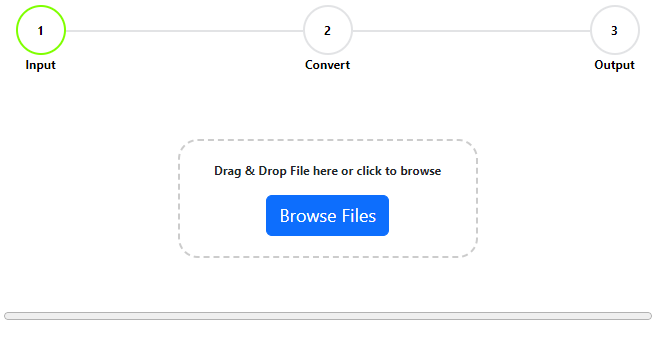So, you’ve got your sights set on a career in GIS. Now you’re trying to decide which school to go to, and what to study. Is it better to do a straight Geographic Information Systems (GIS) degree, or Geography with a minor in GIS? What courses and electives are going to give you the edge in the job market? What extra post graduate certificates will be most beneficial?
In this blog we run through it all.
In a survey of over 200 job postings in the US, a ranking system was established for the top skills required by GIS employers today. The GIS Industry Value Index identifies the most commonly requested skills sets in order of highest to lowest demand to be:
- ArcGIS Online / ArcGIS
- Application development
- Database administration
- Python scripting
- Data editing
- Data Science / Spatial Analysis
- Field surveys and GPS
- CAD
- Cloud architecture
- Remote Sensing with UAVs
Straight GIS Degree, or a Minor in GIS?
In terms of the undergraduate degrees that can get you a career in GIS, you can either do a straight bachelor of geographic information systems, or an undergraduate degree in something else, with a minor in GIS.
The overwhelming consensus is that doing a straight geographical information systems or geomatics degree is not worth the time and money, and doesn’t give you any additional benefit in the job market.
Doing a different degree with a minor or additional graduate certificate in GIS will give you a greater spread of skills and knowledge. Consider majoring in something relevant to your industry of interest, and minoring in GIS to make your applications more competitive.
Which Undergraduate Degree?
The undergraduate degree you choose really depends what field you want to work in and what direction you want to go in with GIS.
Due to the diversity in fields that make use of GIS skills, you can combine a GIS minor or graduate certificate with a wide range of undergraduate degrees.
If you’re driven towards a career in natural resource management, then a degree in forestry, geography or geology will work well with a graduate certificate. Often these degrees will already include some foundational GIS courses. It’s also possible to combine a GIS minor with other undergraduate degrees like computer science, anthropology, or engineering. While these fields might sound unrelated, there is a heavy geospatial presence and need in all of these areas.
Considering that many GIS roles today require a significant amount of programming and web development skills, a computer science degree is highly valuable.
You’ll receive a solid foundation in web development and application development, which you can then boost with a GIS certificate. By ensuring you pick up a variety of coding knowledge, you’ll really hit the target for the skillset desired by many employers. An often overlooked benefit here is the familiarity you will gain with server and database architectures, which are valuable skills for high paying administrator type job titles.
Does the School Matter?
The school you attend really doesn’t have too much influence on your employability after graduation. What really counts are the skills you gain in the degree.
Look for a university that has a variety of course options, allowing you to stack your schedule with courses that will teach you measurable and interoperable skills.
Private industry may have a preference for graduates from particular high-ranking schools, and it is important to keep in mind the value of networking. Of course, if you do a series of online courses, or a certificate, you likely won’t be paid as much initially, and may miss out on potential connections. After a few years on the job that will change, as experience counts far more in the long run to employers.
Courses and Electives to Set you Apart
Taking all the standard courses offered on GIS will not make you stand out from the crowd.
Everyone else will also be taking the same Introduction to GIS and Cartography courses.
It is more beneficial to select electives that promote a wider skillset. These days many people recommend doing a course that doesn’t focus solely on ESRI products. Many companies are making good use of open-source software due to the costs of ESRI products. Learning how to use other products like QGIS and GRASS GIS, will give you the added edge and make you a far more versatile employee to have on board.
Programming skills are the big must have item now. The industry is moving in this direction with no signs of slowing down, so you may need to consider this when selecting your degree and courses.
GIS analysts today are not just processing data and making maps, the role requires a significant amount of web and app development. Having a good working knowledge in one of the main programming languages, primarily Python, means you’ll get two thumbs up from potential employers. JavaScript, HTML, and SQL are also highly desirable.
Additionally, database management (even simple literacy), and knowledge of server architectures gives a you a huge advantage in the job market, as these skills are not taught in most GIS programs, but the skills are in very high demand for many GIS careers.
One trick to discovering what skills you may need for employment is to search the web for GIS jobs that interest you.
Take some time to scroll through the required and preferred skillsets. Take note of any technologies or skillsets that you see often, and consider taking a course that will teach you some of those skills.
Additional Certifications and Professional Associations
Let’s say you’ve completed your degree, but still feel additional certifications or upskilling could benefit you. Which additional certificates are worth the money?
Completing additional training and certifications indicates a desire to continue upskilling and developing your skills after study, which might impress a potential employer. The field of GIS is evolving at a rapid rate. An employee who keeps their skills relevant and sharp is highly valuable, and demonstrates that they will only continue to improve with time.
The GISP
One of the most well-known professional certifications is the GISP, which stands for Geographical Information Systems Professional. In order to become a GISP, a person must have met the minimum standards for ethical conduct and professional practice as established by the GIS Certification Institute (GISCI).
The criteria for application include at least four years of work experience in the GIS field, a bachelor’s degree with a focus on or significant number of courses relating to GIS and some academic contribution to GIS, measured through a graded portfolio submission (e.g. conference attendance, volunteer work).
In addition to this, you also have to pass an exam. The process is fairly complicated, but the accreditation may mean an increased ability to negotiate for higher salary, particularly in consulting work.
Want to learn more about the GISP? Listen to our episode with Toni Spicci
RICS accreditation
Having an accreditation with the Royal Institution of Chartered Surveyors (RICS) only applies to those working in an engineering or surveyor’s role in the construction industry. Depending on your specific bachelor program, some engineering degrees actually include RICS accreditation as an outcome of the degree. If your program doesn’t offer this, it’s something you’d need to apply for post-graduation.
Online Courses and Upskilling
There are a myriad of online learning options available, where you can work through a course program at your own pace and even access tutoring and support. ESRI offers a wide range of free, self-paced online courses, as well as Massive Open Online Courses (MOOCs).
These courses range from very short video explainers of thirty minutes to more detailed programs of four to six weeks, and cover a range of topics from Cartography, to Spatial and Image Analysis.
GeoAcademy and QGIS also offer a selection of basic training courses utilizing the QGIS platform. These are really helpful if you’ve completed most of your studies with ESRI and need a bit of guided experience with other GIS platforms.
Other online training websites like edx, Coursera, Udemy, and LinkedIn Learning also offer a variety of GIS focused courses, ranging from foundational knowledge to niche skillsets, like remote sensing or geospatial programming.
Want some more ideas on geospatial learning? We have an episode for that too!
Decision Making Made Easy
Regardless of what stage you’re at in your GIS career, you’ll have choices to make about continuing your learning. Always consider what skills and experience employers are currently asking for, and where that could lead to. We know that having experience with ArcGIS is a big tick item, as are application development and coding skills. Choose a course that is going to give you the specific skills you need to get the job you want. Not all GIS jobs are alike, and not all skillsets will be as highly regarded in every market. If you find a great school offering a fantastic degree, but it doesn’t quite cover all the skillset you want, consider adding on an additional graduate certificate.
Hopefully this has made your decision-making process a little easier, and good luck in your future GIS career!





